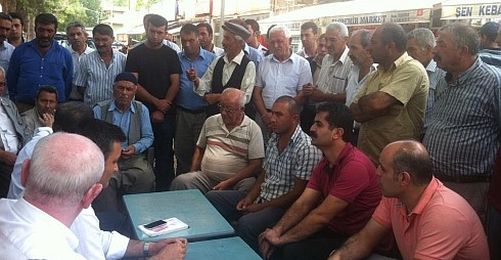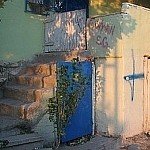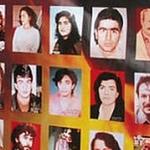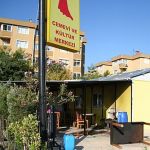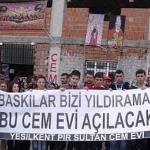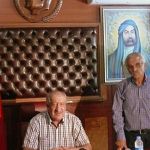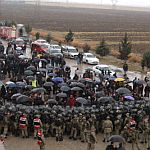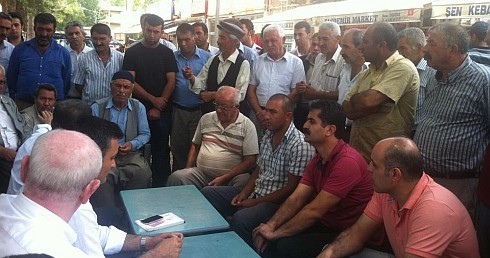
Law enforcement officials Thursday arrested Mustafa Evşi, the traditional Ramadan drummer who got into a quarrel with the Alevi-Kurdish Evli family in the eastern province of Malatya that eventually gave way to mob attacks against the family over the weekend, raising the specter of secterian violence in the area.
Authorities initially took some 24 people under custody upon a directive issued by the Doğanşehir Prosecutor's Office, but they released all of them bar Evşi after questioning them, according to the broadcasting station CNNTürk.
The Malatya branch of the Human Rights Association (IHD) also cautioned on July 31 that more attacks could follow unless authorities implement further security measures.
Traditional Ramadan drummers play their drums to wake up faithful Muslims for their pre-dawn ritual meal in the month of Ramadan, a rite generally not observed by members of Turkey's historically persecuted Alevi minority.
The gendarmerie bulletin that appeared on the daily Malatya Yenigün featured the following account of events:
"After H.E. and his son S.E. battered Ramadan drummer M.E. at around 02:00 on July 28, 2012, drummer M.E. then arrived in vicinity of the house where H.E. and his family resides at about 01:30 on July 29, 2012 in the company of a large crowd of 100 people that began playing drums, singing the National Anthem and chanting slogans and 'tekbir' (a Muslim prayer.) The glass windows of the house were broken when one or several unidentified person(s) stoned H.E.'s house, after S.E. provoked the group by yelling at them. [Officials] identified 23 people who were involved in the incident and who stoned the house and transferred them to the Chief Prosecutor's Office after the [23 individuals] testified, in accordance with a directive issued by the Prosecutor's Office. Suspect [Mustafa Evşi] was arrested by order of the court, while the remaining persons were released pending trial," the gendarmerie bulletin read.
"Security forces did not take the incident seriously"
Meanwhile, a delegation of deputies from the main opposition People's Republican Party (CHP) also arrived at Sürgü in Malatya's Doğanşehir district where the incident took place and wrote a report on the matter.
The CHP's Malatya Deputy Veli Ağbaba, Istanbul Deputy Müslim Sarı, Deputy Kazım Kurt from the northwestern province of Eskişehir and Deputy Hüseyin Aygün from the eastern province of Tunceli (Dersim) together penned the report which referred to the incident as an "act of hate crime."
"A group some 300 people chanting 'tekbir' arrived before the home of the Evli family while crying out 'Sürgü will turn into the Kurds' graveyard,' and 'Sürgü will turn into the Alevis' graveyard,'" according to the delegation which arrived in Malatya on July 29.
"[The mobs] played drums before the house and stoned [the family's] home, breaking its glass windows. The gendarmerie attempted to disperse the crowd by firing in the air. [The mobs] sang the National Anthem before the house, and the incident drew to a close at around 03:30," the delegation said.
"An organized and intentional undertaking"
The delegation's report included the following findings:
*It seems apparent that the incident took place in consequence of an organized and intentional undertaking.
*Security forces and administrators did not take the incident seriously enough and failed to take adequate security measures, which caused the incident to grow even further. A mere 22 soldiers intervened in an attack by a group of 300.
*The incident has simmered down, and things have slackened, but the family is still unable to lead their routine life. Gendarmerie troops are standing guard before their door.
The report also prescribed the following advice to cope with the incident:
*Authorities should conduct the investigation within the context of a hate crime.
*The security of the family's life and property ought to be ensured, and officials should take the relevant measures to this effect.
*The state should compensate for the family's losses and provide psychological assistance to them, and primarily to their children.
*Officials should investigate the incident from a social, political and economic perspective and identify the measures necessary to avert similar events.
*Politicians should refrain from reproducing a rhetoric of hatred and avoid discriminatory policies. The language of discrimination against the Alevis should be abandoned for good. (EKN/AS)




